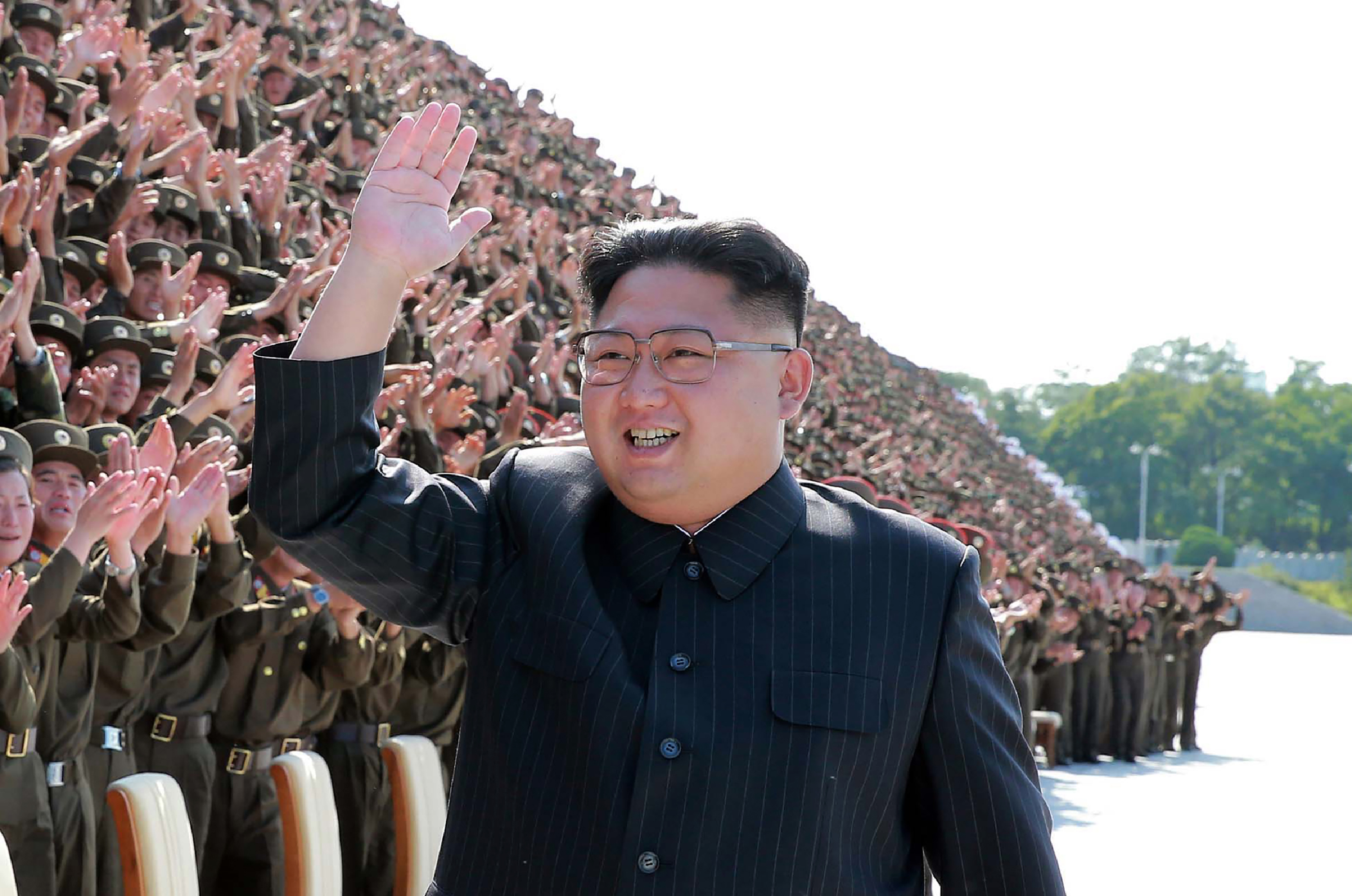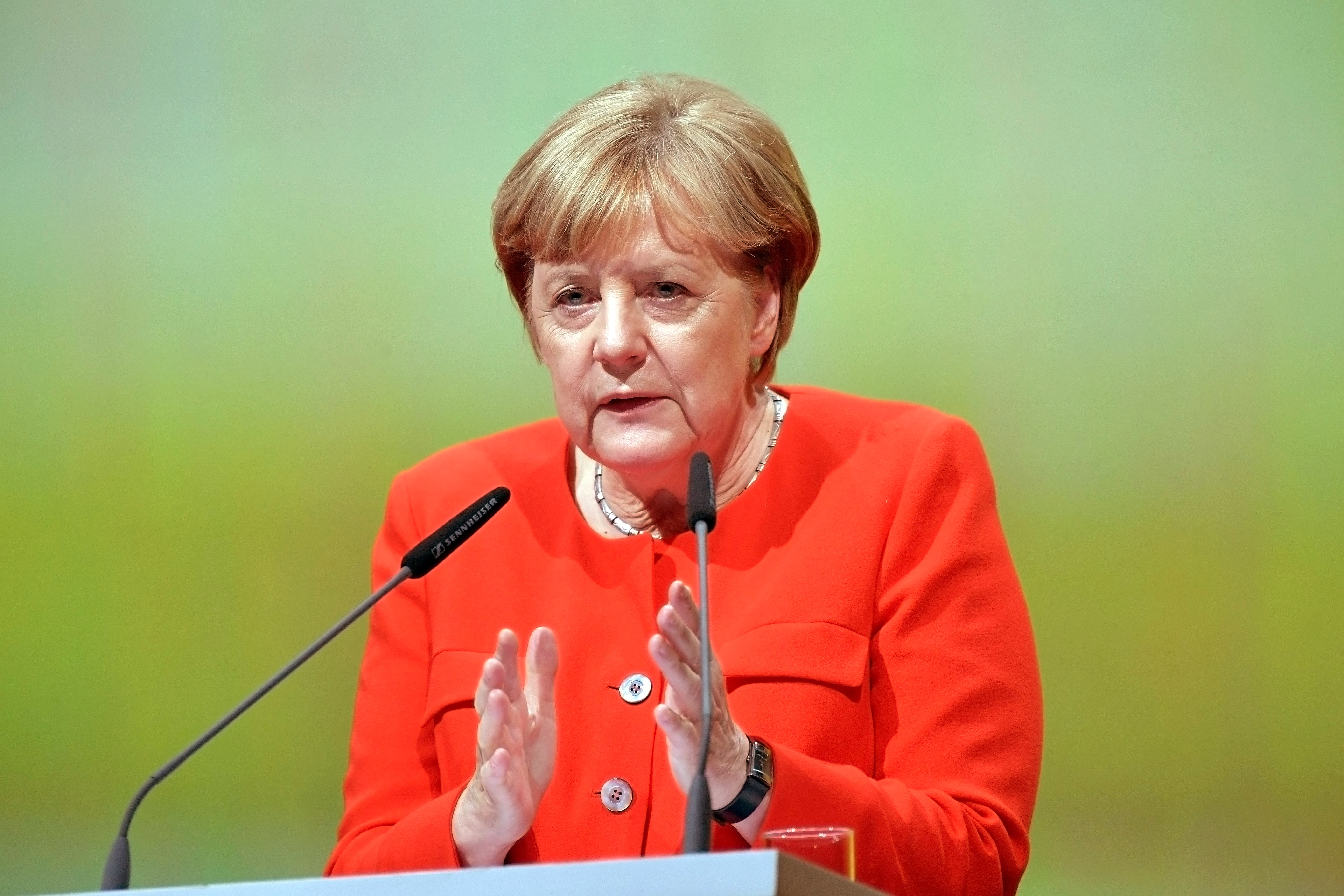Senator Bob Corker (R-Tennessee) is certainly not the first to observe that President Donald Trump is dragging the world to the brink of “World War III,” the likes of which could mean a point of no return for humankind.
During the 2016 presidential primary, critics warned of the consequences of Trump’s bombastic foreign policy rhetoric and his inexperience in that realm of federal politics.
Pacific Standard, for its part, has been covering the Trump administration’s ever-present beating of war drums since just after the election, when the president’s apparent gaffes threatened to undo years of delicate diplomacy between the United States and China.
And here we are, living in a world of firsts. Where analysts of foreign policy typically premise their analyses on precedent, Trump has thrown the foremost observers of global security into a tailspin.
“We have never had such an emotional toddler in the White House, and I do not use these words lightly,” says Karim Emile Bitar, director of research at the Paris-based world affairs think tank Institut de Relations Internationales et Stratégiques. “Obviously, George W. Bush was an intellectual lightweight, but he was not as unpredictable as Donald Trump.”
Bitar says that while Bush made “several mistakes”—particularly in Iraq—”because he was surrounded by dangerous ideologues and because he was unable to understand the stakes,” Trump seems to be completely unchecked in his role as commander-in-chief.
In less than a year in office, Trump has managed to inspire a rash of potential global fallouts. Here are some of what analysts call the most concerning crises, ordered by their apparent potential to devolve into carnage:
1. Iran
U.S. and European observers say Iran is abiding by the 2015 nuclear deal that served as a hallmark of former President Barack Obama’s foreign policy. And still, Trump appears poised to decertify the deal on October 15th, at which point Congress will have 60 days to decide whether to impose new sanctions on Tehran.
Initially, Trump said Iran was simply not complying with the nuclear deal, but following an outpouring of evidence to the contrary, he switched gears, claiming plainly that the deal was not in the U.S.’s best interest. Short of any logical reason to back out of the deal, the sole objective, according to critics, seems to be the dismantling of Obama’s foreign policy legacy.
“The current U.S. administration policies would contribute to more instability and disorder in the Middle East and beyond,” says Seyed Hossein Mousavian, a senior negotiator in the Iran nuclear issue during the administration of former Iranian President Mohammad Khatami, and now a Princeton University visiting research scholar.
“Among multiple crises in the region, the Iranian nuclear crisis was the only one, after 12 years of negotiation, resolved through diplomacy avoiding a potential war. Now, President Trump’s plan to undo the nuclear deal would be a huge setback for diplomacy,” he adds.
The Trump administration has also signaled that it will designate Iran’s security force, the Islamic Revolutionary Guards Corp, as a terrorist organization—a move Mousavian cautions against.
“Putting the IRGC on their list of terrorist group would push Iran to put the U.S. army on their list of terrorist groups, and then you can imagine the consequences would be disaster for peace and stability in the region and beyond,” Mousavian says. “Moreover it would an end to any possible engagement between Iran and the U.S. on any other issue while they are two key players in the region.”
2. North Korea
Analysts have warned that Trump’s departure from decades of more measured dialogue with North Korea endangers not just the U.S.—as some believe that North Korean missiles could reach the U.S. mainland—but, more immediately, Washington’s allies in Seoul and Tokyo.
While North Korea’s bombastic rhetoric toward Washington might have been expected from a small rogue nation, the White House has never before matched such pomposity. The effects of Trump’s assertions that North Korean leader Kim Jong Un is a “little Rocket Man” have only served to exacerbate tensions across the Pacific, as Pyongyang launches missiles into Japanese airspace.
“That we have seen in recent months increasingly dangerous rhetoric from both the White House and Pyongyang which—especially for the White House—narrows the door for diplomatic solution and increases the unease among many Americans and, frankly, leaders and citizens everywhere,” says Daniel Agbiboa, a conflict analysis and resolution professor at George Mason University.

(Photo: STR/AFP/Getty Images)
Past administrations have arranged multinational dialogues to talk Pyongyang down from the edge; this administration has yet to show whether it can present itself as a sober actor in the world of foreign affairs. “If recent history teaches us anything, it is the fact that North Korea cannot be bullied into submission. And with an unpredictable leader like Kim Jong Un, the Trump White House would do well to tone down its dangerous rhetorics and be consistent in its foreign approach,” Agbiboa adds.
3. China
Since his days on the campaign trail, Trump has repeatedly vilified China, often overlooking the conventional wisdom that our economies are inextricably linked (even though the companies from which Trump says he has divested have often depended on the People’s Republic for affordable manufacture).
Almost since day one, Trump has put additional stress on an already tense relationship with Beijing, first indicating the U.S. would walk back from its commitment to the One China Policy mandating Taiwanese reunification to the mainland.
More recently, Trump announced in August the launch of an investigation into China’s trade practices, a move that roiled his government’s counterparts in Beijing.
“I think U.S.-China relations are in a pretty poor state right now,” says William Hurst, a Northwestern University political science professor and expert on Chinese politics. “Broadly, Trump’s bellicose rhetoric on trade and economic relations, as well as the generally tepid attitude of leaders in both Beijing and Washington toward globalization and the world economy as a whole, makes it very hard for the two countries to cooperate productively.”
The absence of steady global leadership in Washington has also pushed Beijing to take a more heavy-handed approach in disputes where Southeast Asian nations complain China is encroaching on their territory and sovereignty.
“In terms of security, China has been increasingly assertive with both hard and soft power in Central Asia and Southeast Asia,” Hurst says. “The U.S., formerly a hegemonic power in Southeast Asia and a key player in Central Asia, has been missing in action in these regions—even since before Trump took office. This has pushed Japanese leaders toward more hardline positions and closer to abandoning their country’s commitment to non-aggression and full re-armament. It also leaves Taiwan and South Korea feeling rather insecure.”
Hurst anticipates that, in a conflict with North Korea, it would be more likely that Washington would launch an attack on Pyongyang than Pyongyang against Washington or its allies, it which case “China would be in an extremely difficult position—to the point where I think this scenario poses by far the greatest risk of direct conflict between the U.S. and China.”
4. Europe
Trump’s incendiary rhetoric and gestures toward Tehran and Pyongyang threaten to sever relationships with what have become, since World War II, indispensable allies across the Atlantic.
German Chancellor Angela Merkel and French President Emmanuel Macron are among those who have indicated they are willing to carry on with the Iran nuclear deal, even if Trump does decertify the agreement on Sunday.

(Photo: Thomas Lohnes/Getty Images)
“Every single European country has made it clear that they intend to stick with the Iran deal. Even Theresa May, who for a while flirted with Trump’s themes seems concerned about his attitude on Iran. So French corporations [and] British corporations will continue doing business with Iran,” IRIS’s Bitar says. “The United States will find itself isolated, but there is still a risk that Trump will do everything possible to derail this Iran deal and to undermine Obama’s legacy.”
If, as Corker suggests, there is a global conflagration amounting to another World War, it is hard to know whether the White House would be able count on the allies, as it did the last time.
5. U.S. Borders
Since the early days of his campaign, Trump has alienated Mexico City by suggesting that undocumented Mexican immigrants are to blame for crime in the U.S., and that Mexico should pay for the border wall barring undocumented migrants. Rights activists have also indicated to Pacific Standard that border towns like Tijuana are flooding with refugees and economic migrants being turned away by the U.S., creating unprecedented humanitarian crises often overlooked because of the dire straits faced by a much great number of migrants to Europe.
But there are indeed migrant shelters at the U.S.-Mexican border flooded with people in need of food and shelter—Haitians who in the past would have been allowed to temporarily join their families in the U.S., for instance, and undocumented Americans rounded up and repatriated in raids. With pre-existing stresses on their infrastructure, Mexican authorities and rights activists are struggling to meet the challenges of a population of paperless, at-risk people who often fall prey to human traffickers and the cartels that back them.
The various crises Trump appears to be instigating internationally aren’t all oceans away. Some of the global security threats are global in scope; others are smoldering right on America’s doorstep.



